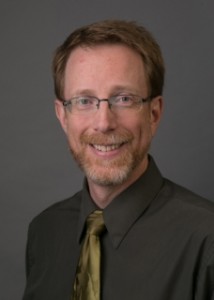Liberal Arts in Action: Fran Mascia-Lees ’76 (Anthropology)
The “Liberal Arts in Action” series allows alumni to speak, in their own words, about the value of a liberal arts education. Fran Mascia-Lees, professor of anthropology at Rutgers University, describes her experiences as an anthropology major at SUNY New Paltz and her notable work as a scholar and mentor.

I began my career as an anthropologist at SUNY New Paltz. I graduated in 1976 with a degree in anthropology and soon went to SUNY Albany for a Ph.D. in cultural anthropology. It was the 1970s, a time of social unrest not only in the United States but also across the world. Resistance to the Vietnam War and colonialism as well as to the inequality of women and minorities in the United States had not just been in the air since the 1960s but had been taken to the streets. Colonized people fought for independence while, in the U.S., the Civil Rights Movement grew stronger and women—both minority and white—began to reveal, analyze, and fight oppression in the home and the workplace.
I became active in these protests and found anthropology—with its emphasis on thinking independently, appreciating differences among groups, standing against ethnocentrism, and pursuing social justice—the perfect discipline to pursue my commitments within the academy. I wrote my dissertation on variation in women’s status across cultures and went on to teach about this and a wide range of other topics, first at a small, experimental liberal arts college and then at a large public university.
Although anthropology is inherently interdisciplinary and has served as the foundation for my inquiries and teaching, other courses I took at New Paltz rounded out my understanding of inequality and injustice, including sociology, women’s studies, and history. A course on World War II, for example, fueled what became my life-long attempt to understand Nazism and genocide. In my undergraduate education, I honed critical thinking skills, learned how to form abstract concepts, and gained the capacity to evaluate evidence and to write with clarity and precision about the topics and issues that intrigued me.
It was this foundation on which I built over the years to publish seven books and 50 academic articles and to lecture nationally and internationally on a wide range of topics, including the body as a site of social injustice, consumer culture as a location from producing oppositional identities, and the politics of knowledge in underwriting social and cultural inequalities, whether in representations and practices in popular science, Hollywood and ethnographic film, or the tourist industry. As Editor-in-Chief (2001-2006) of the American Anthropologist, the flagship journal of the American Anthropological Association, I reviewed and edited articles in cultural, biological, and linguistic anthropology, in archaeology, and in a number of other disciplines. I chaired the Department of Anthropology (2004-2009) and served as Dean of Social and Behavioral Sciences at Rutgers University (2011-2014).
In addition to my academic endeavors, I have tried to put my commitments into action. I recently had the opportunity to do so as an International Scholar for the Open Society Institute (2011-2014), in which I mentored young scholars across Eastern Europe. In this role, I have worked with faculties of cultural studies in Bulgaria, anthropology in Kosovo, and gender studies in the Republic of Georgia, all seeking emancipation from the restrictive structures and practices embedded in academia under communism. A rich and broad undergraduate education was the basis on which I have built a career in anthropology over the last 40 years.
A Message from the Department Chair

Fran Mascia-Lees graduated from the Department of Anthropology nearly 40 years ago, and while the names and faces of the faculty and the courses we teach have changed, the core principles and features she identifies – critical and independent thinking, interdisciplinarity, appreciation of cross-cultural difference – have remained constant. At its core, anthropology is a holistic discipline with culture as its driving and central concept. At the most basic level, it is holistic because anthropologists study the human condition and culture across time and geographic space. Rather than focusing on a single aspect of a culture, such as religion or political system, anthropologists strive to understand the interaction between components in order to develop a broader perspective.
Anthropology is composed of several subfields, including archaeology, biological anthropology, cultural anthropology, linguistic anthropology, and medical anthropology. As diverse as the methods and perspectives between researchers in these different areas may be, ultimately we are all trying to understand human behavior and culture and explore what it means to be human. Additionally, anthropologists incorporate methods, theory, and perspectives from a number of other disciplines, such as sociology, biology, history, chemistry and women’s, gender and sexuality studies, into the development of their research questions. The Department of Anthropology at SUNY New Paltz offers a wide range of courses that not only provide students with a foundation in this diverse field, instilling the core principles noted above by Mascia-Lees, but also supports opportunities for more intensive and specialized exploration.
—
For more information on the department, contact Nystrom at nystromk@newpaltz.edu. For updates on Anthropology alumni and faculty, visit the department webpage, www.newpaltz.edu/anthropology/ or Facebook page, https://www.facebook.com/NewPaltzAnthroAlumni.

